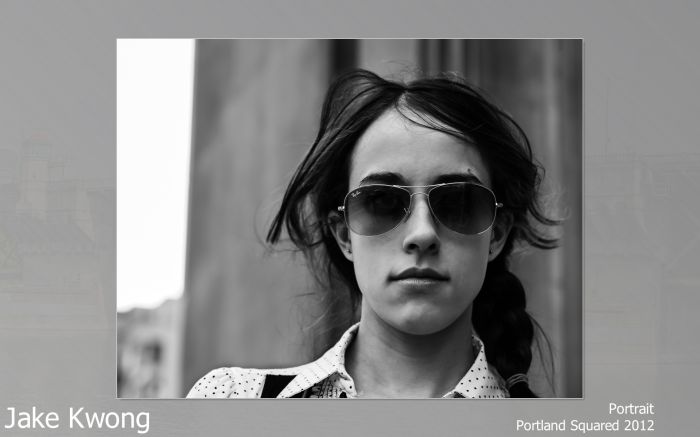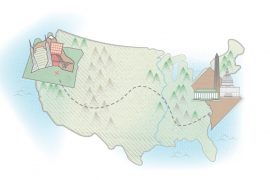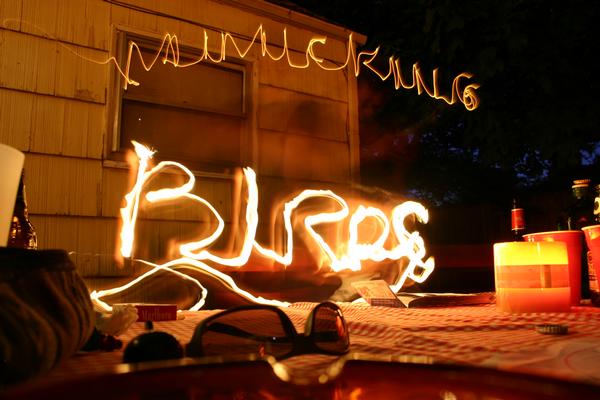written by Stirling Myles | featured photo by Talia Galvin
Philippe Bronchtein (aka Hip Hatchet) is writing the next Great American Experience. In the style of Jack Kerouac, Bronchtein’s songs are an unremitting love affair for the road.
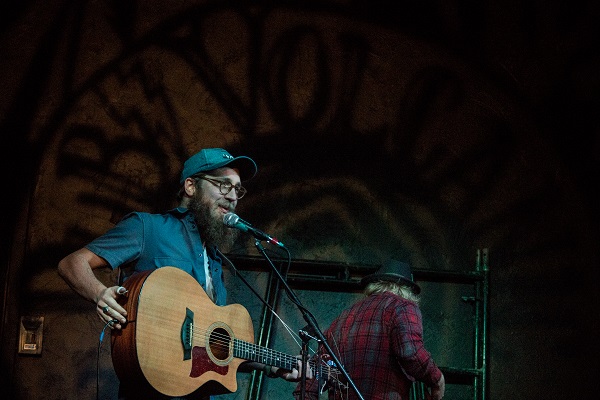
At 26 years old, the solo act’s take on country draws from a well of personal experience that far surpasses his age. As a collector of stories from the road, Bronchtein melds grace and grit within every song. Even though the French Canadian-American resides in Portland, home is relative for Bronchtein. He’s toured in nearly every state—and many a country—playing in cafés, pubs and art houses from Ireland to Alaska, traveling for up to seven consecutive months. Scenes of debauchery, travel and relationships are common lyrical themes, conveying both tenderness and frank rumination.
With three albums already under his belt, including the much-celebrated Joy and Better Days, Bronchtein’s fingerpicking guitar skills are unparalleled. A brilliant example of his guitar acumen is displayed in “American Charm,” an upbeat ode to a past romance. The interlocking guitar melodies and textures carry an emotional weight that supports Bronchtein’s heavy lyricism. With his newest single “Hold You Like a Harness” (also the name of his forthcoming album) Bronchtein shows confident growth, telling stories that are personal and universal.
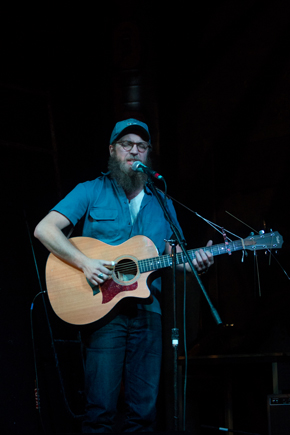 |
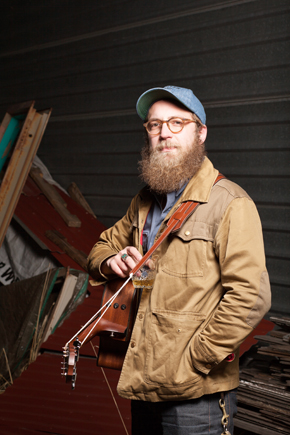 |
Where did you grow up? Where did you learn your hardest lessons?
I grew up in North Jersey, in a good sized town named Montclair. It’s essentially a suburb of New York City, but has an art and music scene in its own right, although I’m sure it’s changed. I haven’t really spent any significant amount of time there since I graduated high school.
My hardest lessons … hot damn … probably somewhere along the way while attending college in Vermont. Between the rigorous multi-disciplinary academic schedule, my first real relationships and a generous commitment to partying, I learned a lot about myself in those few years. It was the first time I really had to figure out how to balance the different spheres of my life. The process of recognizing sacrifice and compromise in any capacity is rarely a simple one.
Who’s your favorite writer? Why?
My favorite songwriter is without a doubt, Townes Van Zandt. I’ve always been enamored with the way he exposes the depth of the simplest human interactions. It’s completely fearless and simultaneously uncomplicated to absorb. I was introduced to his songs on the coattails of my first real heartache, which undoubtedly empowers his songs with a weighted nostalgia.
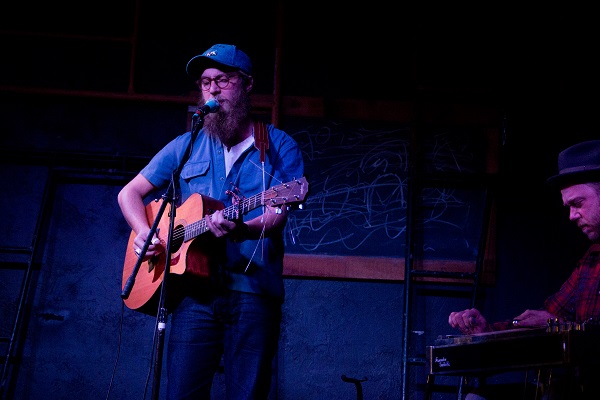
My favorite novelist is Cormac McCarthy. I’ve read a handful of his books in the past few years. I spend a ton of time touring & they make for great books on tape. There’s a sense of vastness that permeates through his stories and the details he omits are assigned the same degree of importance as the ones he includes. I admire the patience that requires.
With such a diverse background in different mediums of art, including dance, how do your other artistic disciplines inform your music?
I studied dance in high school and college and recently left it behind in order to pursue music full time. My dance training influences my songwriting in a very unsurprising way. Broadly speaking, dance is the study of the body and the different ways it can interact with itself and its surroundings. There’s lots of terminology taken for granted in the dance world that is completely foreign to songwriters and musicians. I look at it as an untapped gold mine.
What are the striking differences between playing abroad and playing here in the States?
Well, it’s important to mention that I had a booking agent overseas. Here in the States I still manage everything DIY. Many of the rooms I played in England and Ireland were smaller listening rooms—venues that were destinations for people to come and really engage with songwriters and performers. In America, I often find myself in coffee shops and dive bars, which can be really tough, especially in towns where you have no support network. Thankfully, the past three years of touring have started weeding those rough nights out of the equation.
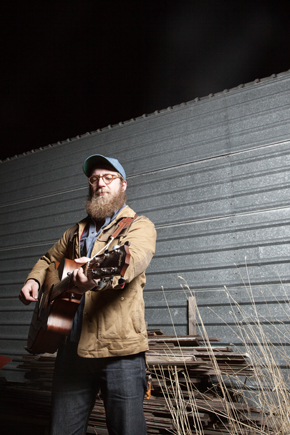 |
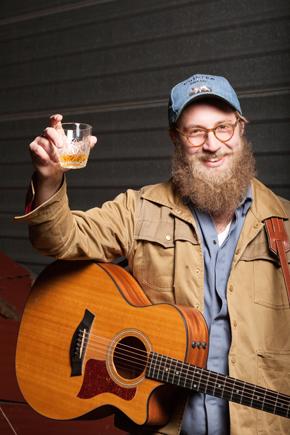 |
Really, what are more remarkable than the differences are the similarities. No matter where you are in the world, people want to connect with an artist whose songs have moved them. From Colorado Springs, Colorado to Newcastle, England, I really enjoy the similarities in the conversations that emerge after the shows. It’s strange to realize how a certain line in a song can resonate with two different people from completely different parts of the world. In a lot of ways, I think that’s a fundamental purpose of writing songs. It’s still crazy to me that in honestly drawing on my own experiences, certain songs can act as a catalyst for someone else’s reflection on their own life.
What do you get from touring solo that you don’t get from touring with a band?
Touring by myself is a tremendously lonely endeavor, but for the most part, I enjoy it. I’m on my own schedule, in pursuit of my own agenda, and have no responsibility to anyone but myself and the place I’m expected to play. The hardest part of touring alone is the days off. When I’m touring with Quiet Life, if we have a day or two off, there’s a whole gang of guys to explore a new place with. When I’m on my own I’ll check out a few things recommended to me by a local, but I usually end up spending most of the day alone in a coffee shop. At least it gives me a chance to catch up on reading or email. And I’ve met some interesting folks along the way. But there’s no doubt that successfully completing a solo tour gives me a deeper sense of satisfaction and accomplishment.
What are the best things about being on the road? What are the worst?
The best things are the constant change of scenery, the wild and wonderful people along the way, lots of free booze and the unforgettable late nights. There’s an endless stream of inspiration that seems to flow from town to town, moment to moment. Unfortunately even that ends up becoming its own kind of routine. Touring hardships start to fog the lens of how incredible the experience can be. The worst things are regularly shitting in dive bars, sleeping in strange and sometimes unsafe situations, the hangovers, the inescapable early mornings, and the inability to maintain any consistent relationships … romantic or otherwise. When you’re only in one place for two to four months a year, everything feels temporary and that expectation can really take its toll.
What’s the last thing you were listening to in the car?
Sturgill Simpson’s “Long White Line.” He’s a killer country singer that just put out an album called Metamodern Sounds in Country Music. Classic outlaw sound but with a psychedelic twist. I think it was Rolling Stone that described it as Waylon Jennings on Willie Nelson’s Drugs.
Tell me about your fascination with R. Kelly.
Oh god…I guess I just don’t see nothing wrong with a little bump n’ grind.
With a new album in tow, what’s your main message that you want to put out into the world?
The new album is finished, but hardly in tow. I’m just trying to stay on the road, play lots of enjoyable shows, and hopefully someone will want to help out with a proper release.



